- Home
- Michael Scott
Magic and Myth Page 2
Magic and Myth Read online
Page 2
“Brona?” he whispered.
The girl jumped with fright. When she looked up, her face was blotchy from crying, and her eyes were red and swollen. “Who are you?” she sniffed.
“Brona!” he said, “it’s you!”
“Yes, I’m Brona. Who are you?” the young girl asked. She looked hard at the old man. “You look familiar, but I don’t think I’ve ever seen you before.”
“We met a long time ago,” the old man whispered.
“When?” Brona demanded. “I don’t think I’ve ever met you.” She stood up and brushed grass and straw off her dress. “I really must be getting home. My mother and father will be getting worried.”
The old man shook his head. “They’re not looking for you anymore,” he said softly. She opened her mouth to ask a question, but he held up his hand. “What do you last remember?” he asked softly.
“I remember the Fairy-Host,” she said, looking up at him as if daring him to contradict her. When he said nothing, she went on. “I was dancing, dancing, dancing with the fairies. My brother wouldn’t dance with them, though, but I danced the whole night through.”
“Brona,” the old man said gently, “I’m your brother Paul. You’ve been away with the fairies for more than sixty years…”
Brona lived with her brother Paul for many years afterward. They moved away to Dublin where everyone thought that they were uncle and niece. Brona later became a famous dancer—for she danced, and even walked, with beautiful, unearthly grace and poise.
There is a saying that anyone who has danced with the fairies will hear their music forever. And, indeed, that haunting music seemed to follow Brona for the rest of her days.
The Fairy-Horses
When the Sidhe—the fairy-folk—left our world and retreated to the Otherworld, they sometimes still allowed their horses and cows to roam free to graze in the fields of men. Those horses were the finest in the world, fine-boned, fast as the wind and very intelligent. Usually humans only saw them from a distance, or in the dead of night, their coats shining silver in the moonlight. People often tried to catch them, but very few succeeded—and those who did manage to capture one of the fairy-horses usually found that they brought nothing but bad luck.
This is a story about a young prince of Erin long ago who managed to catch one of those horses…
“Look!” Fintan said. The prince had led his mother down the stone steps of the palace and out beyond its high walls. Now he stopped and pointed down toward the lake that bordered the fields.
Queen Scota shaded her eyes with her hand. She was a tall, thin woman with long flowing hair that had once been gold but was now streaked with silver. As Fintan watched, he saw his mother’s expression harden, and her blue eyes grew cold and angry.
“Who has done this?” she demanded.
Fintan looked down over the fields again and shook his head. From where he was standing, he could see that the field, which should have been a mass of waving golden corn, was muddy and trampled, the corn crushed and scattered. “I don’t know,” he said at last. Although he was only twelve, he was almost as tall as his mother, and he had her golden hair and sharp blue eyes.
“Who first discovered that the field had been destroyed?” the queen demanded.
“I did,” Fintan said, “when I was going down to swim in the lake earlier this morning.”
The queen turned on her heel and stalked back toward the palace gate, her long green gown billowing out behind her. “Fetch me the Captain of the Guard,” she called back to Fintan.
The young boy nodded. He stood for a few moments looking at the field of destroyed corn, and then he hurried off to the barracks to find Colman, the Captain of the Palace Guard.
* * *
—
The long, high throne room was dark; the only light came from a roaring log-and-turf fire and a few scattered torches set into the wall. Queen Scota was standing in front of the fire, her head bowed and her hands clasped in front of her, her foot tapping impatiently. She looked up when she heard the footsteps approaching.
“Well?” she demanded as her son and the Captain of the Guard hurried into the smoky room. Fintan wanted to shy away from his mother’s menacing gaze but kept his spine straight.
Colman MacGregan stopped and bowed. He was a tall warrior from Erin’s wild western shores, and he had black hair and hard black eyes. “Your Majesty wished to see me?” he said in his soft, almost musical accent.
“Have you seen the field?” Queen Scota snapped.
“I have,” Colman said quietly.
“That is the main source of next year’s harvest—and it has been ruined. I want to know what happened. I want to know who did it. And I want to know what you are going to do about it.”
Colman straightened the heavy woolen cloak on his shoulders, and then rested his left hand on the bronze knife in his belt. “I have looked at the damage with Prince Fintan,” he said, “and we have found the imprints of horses’ hooves in the soft earth by the water’s edge.”
Queen Scota rested both hands on her hips. “And how did riders get this close to the palace? Where were the guards?” she shouted.
The Captain of the Guard smiled, and a thrill ran through Fintan as he remembered what they saw. “I said horses, Your Majesty. I did not say that there had been riders.”
The queen took a step closer, her eyes flashing angrily. “Just what do you mean?” she demanded.
“There is no way any riders could have approached so close to the palace without the guards first seeing them. Therefore,” he concluded, “the horses must have come either from the palace—or from the lake!”
“From the lake!” the queen gasped, a cold shiver running up her spine.
Fintan nodded. “I have looked at the prints on the ground, Mother,” he said. “The hoof-marks are thinner and finer than those of our own horses.”
The queen shook her head doubtfully, but then Fintan took a gleaming half circle from his tunic. He held it up and the light from the fire turned it red-gold. “What is it?” she asked.
“It’s a horseshoe,” Fintan said softly, turning the piece of metal around in his hands. “And it’s made of solid silver!”
The queen held out her hand and took the piece of metal from Fintan. She stepped back to the fire and examined it more closely. It was indeed a horseshoe, but the workmanship was far finer than any her own blacksmiths were able to make, and the hoof it was made for was far smaller and neater than that of a normal horse. It must have been the work of fairies, then. She handed the shoe back to her son and then looked at Colman. “Well, what do you think happened?”
“I think we’re dealing with Aug…Augh…” He turned to Fintan. “What are they called?” he asked.
“Aughisky,” the prince said reverently. “Water-horses.”
Colman nodded. “Aye, water-horses. There must be a Sidhe palace beneath the waters of the lake,” he said. “If they are short of fodder in the Otherworld, they will allow their creatures to roam free to find their own food. Naturally, the water-horses would have headed straight for our fields.”
“Are you sure?” Queen Scota asked.
“It has happened in other parts of the country.”
“Well, it’s not going to happen here. I want them stopped,” the queen snapped.
Colman shook his head. “That might not be so easy.”
“I want them stopped,” the queen repeated. Fintan flinched at his mother’s insistent tone.
The Captain of the Guard looked at Fintan and then back to the queen. “We really need the help of the druids in this,” he said, referencing the high-ranking holy men of Erin, “but unfortunately most of them are on the Isle of Mona for some secret ceremony, and we’ll have to wait a few days.”
“I want them stopped—tonight!” Queen Scota s
aid. “If any more fields are destroyed, my people will go hungry next winter…and I will not allow that. Stop those animals!” She turned on her heel and swept from the room.
Colman shook his head and looked at the prince. “It’s very easy for her to say she wants them stopped tonight—but she doesn’t tell us how we are going to stop them, does she?”
Fintan looked at the silver horseshoe in his hand and sighed. “We’ll find a way.”
* * *
—
That night the moon shone from a cloudless sky, and turned the black waters of the lake into a silver sheet. There was a gentle breeze and the heads of corn whispered and rustled together. The dozen men hidden among the stalks tried to stay as quiet as possible, but the corn cut and poked and prodded and almost drove them mad. Every time they moved, the corn stalks would find another place to pinch.
Prince Fintan and Colman were hidden in a thick clump of bushes off to one side of the field, close to the water’s edge. Like the rest of the men, they were holding lengths of rope. They were going to try to capture some of the water-horses.
“Will they come tonight?” the prince asked the Captain of the Guard.
Colman shrugged. “I don’t know, but I hope so.”
“Do you think we will be able to catch one?”
The older man shrugged again. “I don’t know—and I’m not sure I want to capture one. We should have waited until the druids returned and got some advice from them.”
Fintan nodded. He too would have preferred to wait until the wise men and women had returned from their secret island. They might have been able to cast some spell that would have kept the horses from their fields, but his mother was very impatient. Even so, his head had begun swirling with fantasies of the adventure and mystery of the water-horses…and what it might be like to ride one himself…
“Also,” Colman added, “what do we even do if we do manage to capture one of the creatures?”
Fintan shook his head. He would keep his thoughts to himself.
The night wore on and the moon rose higher in the sky. Soon the watchers began to nod off. Around about midnight, the flat, silver surface of the lake was disturbed by a ripple. It spread out in a growing black circle, joined by another and then another. And then a silver horse’s head rose from the lake in a splash of water. Flat, mirrorlike eyes stared across the lake toward the darkened fields, and long, narrow ears topped with wiry strands of hair twitched.
Fintan gasped.
Slowly, slowly, the fairy-horse rose from the lake. It was tall and thin, its coat gleaming silver in the moonlight and its mane and tail like silver threads. Its feet were tiny, impossibly small. It stood on the surface of the water and waited.
Another horse rose like some huge bubble, and it was joined by another and then another of the creatures. And then, in an enormous ripple, a dozen horses rose together. They were almost identical, except that the first horse seemed to be somehow nobler than all the rest. Fintan gazed upon the creatures in awe. A single thought crept into his mind: I must have one for myself.
The fairy-steeds stood on the water for a few moments while the ripples died on the lake. When the water was still again, they moved forward, trotting nimbly and daintily, their feet barely breaking the surface, the water splashing silver and black in the moonlight. They came out of the lake and climbed up the little bank. Then they walked into the field of corn, where they began to graze.
They passed within a few inches of Colman and Fintan, who had been holding their breaths as they watched the majestic herd. They waited until the creatures had moved out into the field and had begun to feed, before slowly and carefully creeping from their hiding place.
Colman moved as close to one of the horses as possible and began to slowly swing the rope he held around his head. It made a gentle shushing sound as it spun. Immediately all the fairy-horses stopped feeding and their heads came up with their long ears twitching. One spotted the captain and neighed a warning. All of the water-horses’ heads turned in his direction, and suddenly the fairy-mounts scattered.
The men rushed from their hiding places and attempted to catch them as Fintan looked on, his heart pounding. But the horses were too fast and too cunning. They dodged, twisted, and turned. Once or twice they darted straight toward the men, only turning aside at the last moment when the men had leaped for cover.
One by one, they splashed into the water and disappeared beneath the dark waves.
Soon, only one horse remained: the first creature who had appeared. He had dashed about the field, charging toward the men, rearing up on his hind legs, protecting the other horses and allowing them to make their escape. And when they had all vanished into the lake, he neighed triumphantly and then dashed toward the water himself.
The guards ran at him and flung their ropes, but they fell short or slid off his polished back. And then Prince Fintan rose up out of the tall rushes that grew by the water’s edge. The rope in his hand was spinning around his head so fast that it was almost invisible. The fairy-horse didn’t see him until it was too late. It attempted to change direction, but the ground beneath its feet was soft, and it slipped—and while it was scrambling to regain its balance, Fintan managed to drop the rope around its head.
The fairy-horse froze in astonishment, and then it lifted its head and neighed—but not like any normal horse. This was an almost humanlike cry, and it echoed and re-echoed across the flat waters of the lake. It reared up on its hind legs and the prince, who was still holding tightly onto the rope, was dragged up off his feet. The horse shook its head, and Fintan was tossed to and fro. He screamed in fear. But then Colman and the rest of the guards raced up and, while the captain grabbed the prince’s rope and helped pull the horse’s head down, the guards flung their ropes around the creature’s neck and body. The horse struggled for a few moments, but then it gave an almost human sigh and stood still. It turned its huge, catlike eyes on Fintan and stared hard at him. The prince shivered.
“It looks like it’s trying to say something to me,” he said to Colman.
“Aye.” The captain nodded. “It does. I think your mother should let this creature go before it brings bad luck to us all.”
“But she won’t do that,” the prince said. And maybe I don’t want her to, he thought suddenly.
Colman nodded again. “I know.” He then turned from the horse and looked at Fintan like he could read his thoughts. “But a word of warning, prince. Stay away from this creature—and never, never ride it.”
The prince looked from the Captain of the Guard and then back to the fairy-horse. He shivered again. “I won’t,” he promised.
* * *
—
As expected, Queen Scota would not allow the horse to be set free—even when the druids returned and insisted that she should. They promised that if the horse was not allowed to go free, then the fairy-folk would come and take it…and they would be sure to make the queen and her court pay for capturing one of their prize animals. But the queen insisted that the horse stay—and, while she had it, their fields were safe.
A year passed.
The horse grew, in both size and beauty. It was a lovely creature, tall, fine-boned, with a coat that looked like it was made of silk and a mane and tail that were as delicate as silver wire. However, the horse had a vicious temper and would snap its great slablike teeth at anyone who came too close—except for Fintan. With the prince, the horse was as gentle as a foal.
Soon the prince grew very fond of the beautiful creature, and came every day to groom and talk to it. He even named the creature Capall, which simply meant “horse” in the Irish language. Despite Colman’s warning, Fintan’s desire to ride Capall only grew stronger over time. But his mother would not allow it. She, too, had been warned by the captain as well as the druids, and she feared what might happen if her son’s wish were ever realized.
Every year, a huge fair was held in Erin, when the merchants, artists, and farmers from all parts of the country would bring their wares to be sold. The highlight of the fair was three days of games and sports. Champions would come from all parts of the country and try to win the prizes that were given for spear throwing, chariot racing, and weight lifting. But the most important event was the great horse race between the royal families of Erin. It was the first year Fintan would be allowed to participate, and he had been looking forward to it for as long as he could remember.
And Fintan wanted to ride the fairy-horse in the race.
“No,” the queen said, “I cannot allow it.”
“But Capall is safe with me,” Fintan insisted.
“That is a fairy-horse,” his mother said, “and no fairy-horse is ever safe.” She shook her head firmly. “No. I will not allow you to ride it.”
“But we could win!”
Queen Scota nodded. “Yes, perhaps your horse would come in first; but I doubt if the other judges would allow you to win. They would probably say that we had cheated by using one of the fairy-steeds.” She paused. “Perhaps you are still too young to join the race. I shall request that Colman take your spot this year. We will reevaluate your participation next year.”
“No!” Fintan shouted. His mother narrowed her eyes at him.
“You will not race this year,” she said firmly. “That’s final.”
The prince had opened his mouth to argue, but seeing the look in his mother’s eyes, he had closed it again without saying a word.
* * *
—
The day of the horse race was warm and dry, with just a slight breeze blowing in from the east, carrying on it the very, very faint smell of the sea. The fields beyond the Hill of Tara, the ceremonial grounds where the festival was always held, were bright with tents and gently fluttering flags. Thousands of people milled about, all in their best clothes, stopping at the stalls, tasting the fruit or freshly cooked meat, or drinking the mead. There were leather workers, who could mend your belt or sandals, or make you a scabbard for your knife. There were blacksmiths who could make you a knife, or put a new shoe on your horse, or mend the wheel of your chariot. There were soothsayers who could tell your fortune. There were jugglers, dancers, bards, and harpers. There were people selling and shouting, buying and laughing. All the citizens of Erin were there.

 The Warlock
The Warlock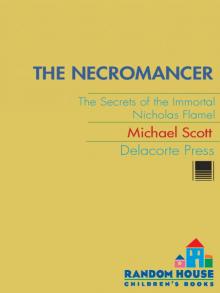 The Necromancer
The Necromancer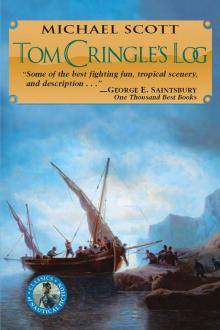 Tom Cringle's Log
Tom Cringle's Log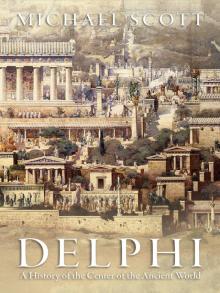 Delphi
Delphi The Magician
The Magician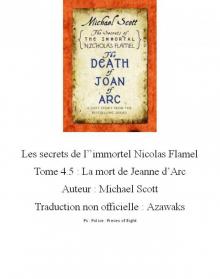 La mort de Jeanne d'Arc (trad. privee)
La mort de Jeanne d'Arc (trad. privee)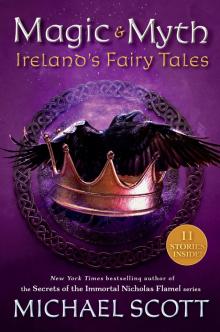 Magic and Myth
Magic and Myth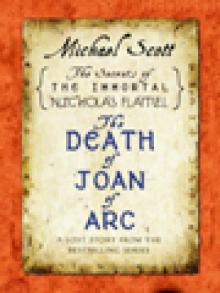 The Death of Joan of Arc
The Death of Joan of Arc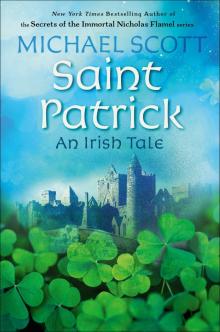 Saint Patrick
Saint Patrick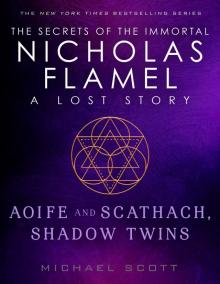 Aoife and Scathach, Shadow Twins
Aoife and Scathach, Shadow Twins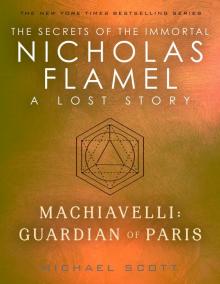 Machiavelli
Machiavelli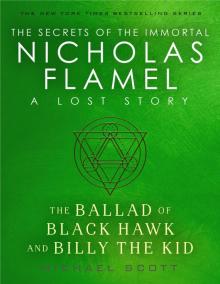 The Ballad of Black Hawk and Billy the Kid
The Ballad of Black Hawk and Billy the Kid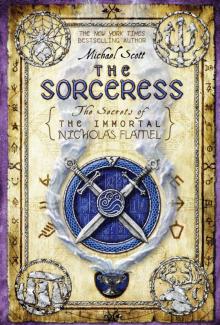 The Sorceress
The Sorceress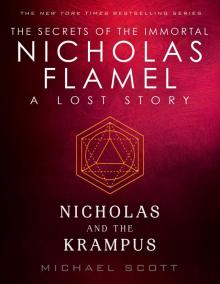 Nicholas and the Krampus
Nicholas and the Krampus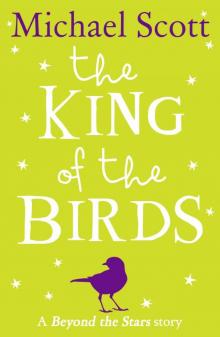 The King of the Birds
The King of the Birds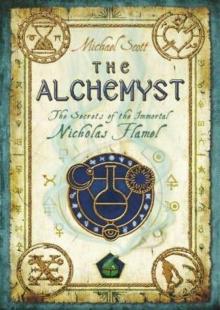 Nicholas Flamel 1 - The Alchemyst sotinf-1
Nicholas Flamel 1 - The Alchemyst sotinf-1 Shakespeare- a Complete Introduction
Shakespeare- a Complete Introduction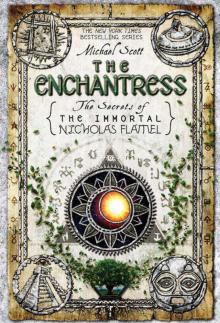 06 The Enchantress
06 The Enchantress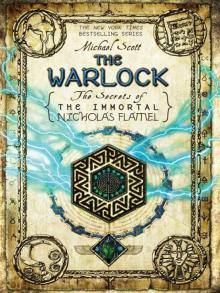 05 The Warlock
05 The Warlock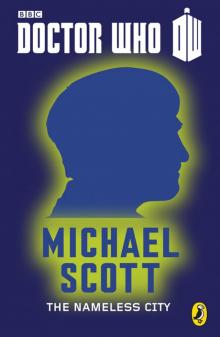 The Nameless City
The Nameless City The Necromancer sotinf-4
The Necromancer sotinf-4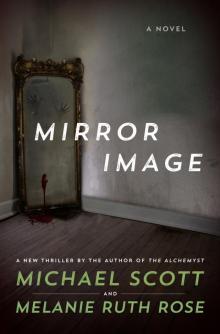 Mirror Image
Mirror Image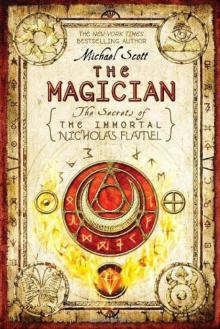 Nicholas Flamel 2 - The Magician sotinf-2
Nicholas Flamel 2 - The Magician sotinf-2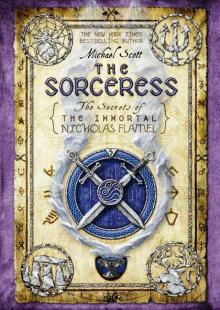 The Sorceress sotinf-3
The Sorceress sotinf-3